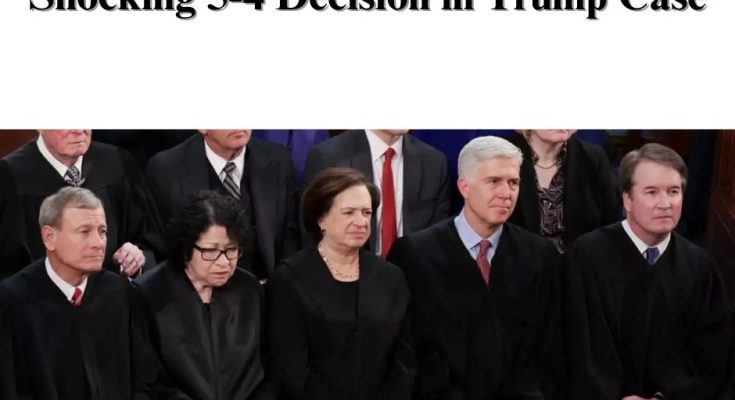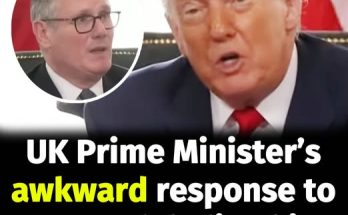On Wednesday, a split Supreme Court dismissed the Trump administration’s appeal to maintain the freeze on billions of dollars in foreign aid that Congress had approved.
Nevertheless, the court did not specify when the funds must be disbursed, permitting the White House to continue contesting the matter in lower courts.
The decision was rendered with a 5-4 vote.
Although the order was unsigned, four conservative justices dissented: Samuel Alito, Clarence Thomas, Neil Gorsuch, and Brett Kavanaugh. This left five justices in the majority, including Chief Justice John Roberts, Amy Coney Barrett, Elena Kagan, Sonia Sotomayor, and Ketanji Brown Jackson.
The majority emphasized that since a court-imposed deadline to allocate the funds had already lapsed last week, the lower courts should “clarify what obligations the government must fulfill to ensure compliance with the temporary restraining order.”
In a strongly articulated dissent, Alito expressed that he was “stunned” by the court’s ruling allowing the lower-court judge to instruct the administration to unfreeze the foreign aid in question.
Alito further remarked: “A federal court has many tools to address a party’s supposed nonfeasance. Self-aggrandizement of its jurisdiction is not one of them.”
Despite the ruling being 5-4, it was described as “extremely modest” by Steve Vladeck, a CNN Supreme Court analyst and professor at Georgetown University Law Center.
“The unsigned order does not actually mandate the Trump administration to promptly disburse up to $2 billion in foreign aid; it simply paves the way for the district court to enforce those payments, likely if it provides more specific details regarding the contracts that need to be honored,” Vladeck stated. “The dissent from four justices, nonetheless, indicates that the Court is likely to remain divided, potentially along these same lines, in many significant Trump-related cases that are already forthcoming.
The appeal was expedited to the high court within a matter of days – remarkably swift by the standards of the federal judiciary. This marks the second instance in which the justices are confronted with cases regarding Trump’s efforts to centralize authority within the executive branch and significantly alter the government following his inauguration in January.
At the heart of the case lies billions in foreign aid from the State Department and the US Agency for International Development, which Trump suspended in January as he aimed to restrict spending and align those agencies with his agenda. Several nonprofit organizations that depend on this funding for global health and various programs have filed a lawsuit, claiming that the administration’s actions overstepped Congress’s authority to regulate government spending and breached a federal statute that governs agency decision-making.
In a statement released on Friday, the organizations characterized the administration’s actions as having a “devastating” effect.
They informed the court that the funding “promotes US interests internationally and enhances – and, in numerous instances, literally saves – the lives of millions worldwide.”
“By doing so, it aids in preventing issues such as disease and instability abroad from reaching our borders,” the organizations asserted.
On February 13, US District Judge Amir Ali mandated that a significant portion of the funds continue to be disbursed on a temporary basis while he evaluated the case. Shortly thereafter, the plaintiffs contended that the administration was disregarding that order and persisting in obstructing the spending, prompting Ali to instruct the Trump administration to allocate the contested funds by midnight on Wednesday.
Ali was appointed to the bench by President Joe Biden.
In a hurried response, the Trump administration filed an emergency appeal to the Supreme Court mere hours before the deadline, requesting the court to at least delay the order for a few days. The administration is undertaking “substantial efforts” to assess payment requests and disburse the funds, the government argued, but it was unable to activate the funding quickly enough to comply with Ali’s timeline.
The organizations that initiated the lawsuit have expressed skepticism regarding that explanation.
“The government has not undertaken ‘any significant measures’ to achieve compliance,” the groups stated in a Supreme Court filing earlier on Friday.
Roberts, acting independently, granted the administration a temporary reprieve on Wednesday by issuing what is referred to as an ‘administrative stay,’ which paused the case to allow both parties to present written arguments. The chief justice is responsible for handling emergency cases that arise from the federal appeals court in Washington, DC.
Among the organizations contesting the freeze are the AIDS Vaccine Advocacy Coalition, a New York-based entity focused on accelerating HIV prevention, and the Global Health Council, located in Washington, DC, which represents various groups that implement health programs.
The Trump administration disclosed in court documents related to the case that it is seeking to terminate over 90% of the USAID foreign aid awards.
“In total, nearly 5,800 USAID awards were terminated, while more than 500 USAID awards were preserved,” stated a filing from the administration.
“The total ceiling value of the preserved awards is approximately $57 billion,” the filing indicated.
In addition to the terminations of USAID awards, “approximately 4,100 State awards were terminated, and around 2,700 State awards were retained,” the government informed a lower court, referring to the State Department.
Aid programs globally have come to a standstill due to the extensive funding freeze and the review of billions of dollars in assistance. This situation also coincides with the Trump administration’s decision to either place the majority of USAID’s workforce on leave or to terminate their employment.
Democrats are celebrating the ruling.
On Capitol Hill, Democrats expressed that the ruling indicates Trump’s authority to halt spending is not without limits.
“The funds had already been allocated, actions were already underway, and I believe the Supreme Court made the correct decision. Now, the administration must lift the freeze and permit those contractors to proceed with their work,” stated Rep. Gregory Meeks of New York, who serves as the leading Democrat on the House Foreign Affairs Committee.
Rep. Pramila Jayapal referred to it as “a very significant ruling” from “a court influenced by Trump.”
“I believe it reinforces the notion that Congress possesses the authority to allocate funds, and that individuals depend on that authority for these programs. When the work is completed, payment should be made as it has been authorized,” the Washington state Democrat informed CNN.
When asked if she is assured that the payments will resume, Jayapal replied that she is not certain about anything, “but I hope that the Trump administration will heed the Supreme Court’s decision.”



